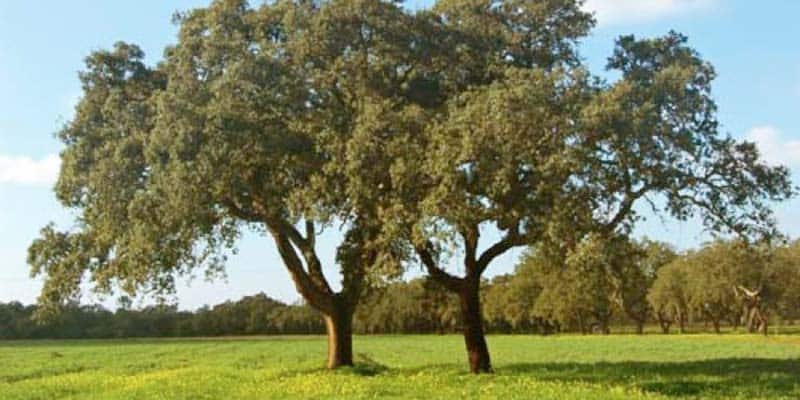Chinese project involves clearing 5.3 hectares of trees
The construction of the lithium battery factory that Chinese manufacturer CALB Europe wants to set up in Sines (Setúbal) could involve the felling of yet more cork oaks – 703 cork and holm oaks, both young and old, to be exact.
After the increasing sense of revolt among environmentalists over ‘green measures’ that implicate the destruction of Nature and biodiversity comes another project to threaten hectares of heroic landscape.
According to a technical note supplementing the Environmental Impact Assessment now out for public consultation until the end of February, the installation of CALB’s lithium battery factory on the ZILS industrial and logistics zone in Sines, will mean clearing 5.3 hectares of cork oak forest.
The document, available on the Participa Portal and consulted on Friday by Lusa news, states that “a total of 703 protected trees” have been identified in this area, specifically holm oaks and/or cork oaks, of which “589 are young and 114 are mature”.
This project also includes the construction of a very high voltage power line, the design of which is still at its preliminary study stage, but 126 cork oaks (68 young and 58 mature) “have already been identified for felling in the area of the 16 supports of each power line.
“Of these, 108 are in plantations and the remaining 18 are isolated specimens,” says the document.
Thus, in total, the construction of the industrial unit looks like it requires the felling of 829 cork and holm oaks, both considered protected species, with the company planning to “compensate for the felling of cork oaks with a ratio of 1.25”, reads the document.
According to the project promoter, it will be up to Aicep Global Parques – the ZILS management entity – to draw up and implement a compensation plan which will be submitted to the Institute for Nature Conservation and Forests (ICNF).
CALB meanwhile will be responsible for “compensating for the felling of cork and holm oaks and other forest vegetation in the area of the power lin”e.
According to the Portuguese Environment Agency (APA), in a notice consulted by Lusa, “the single environmental licensing process” for the Lithium Battery Industrial Plant that CALB seeks to install began today and will continue until February 29.
According to the document, the process is subject to the Environmental Impact Assessment (EIA), Integrated Pollution Control Prevention (IPCP) and Major Accident Prevention (MAPP) procedures.
Public consultation is available for 42 days on the Participa Portal at http://participa.pt.
The company estimates that the industrial unit for the production of lithium batteries – which will have a capacity of 15 Gigawatt hours (Gwh) – will be able to start production “by the end of 2025”, with the aim of “meeting the high demand from customers, particularly in the automotive industry”.
Source: LUSA




















